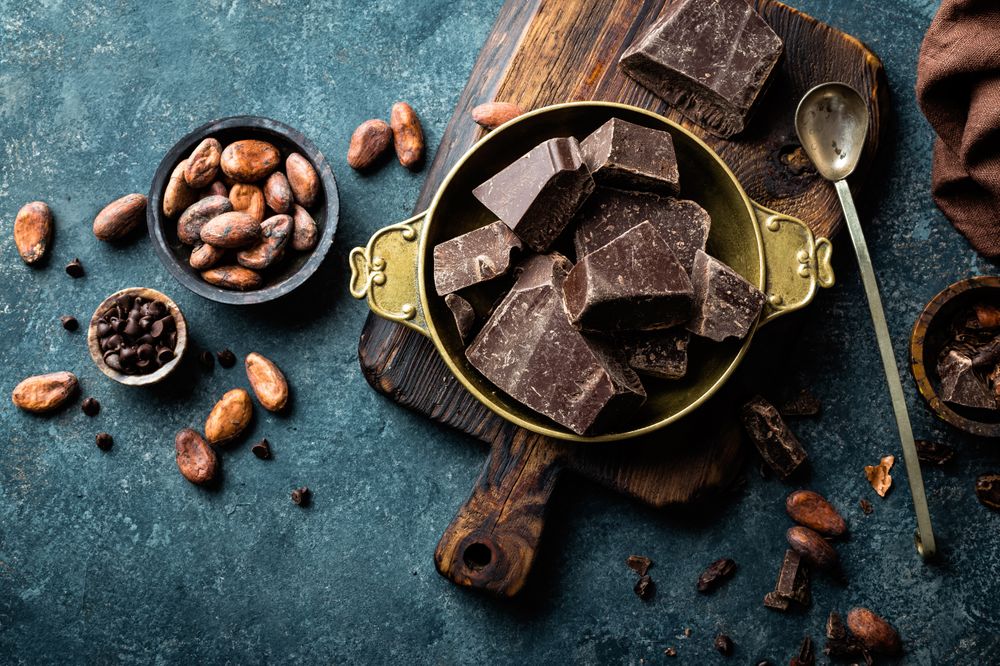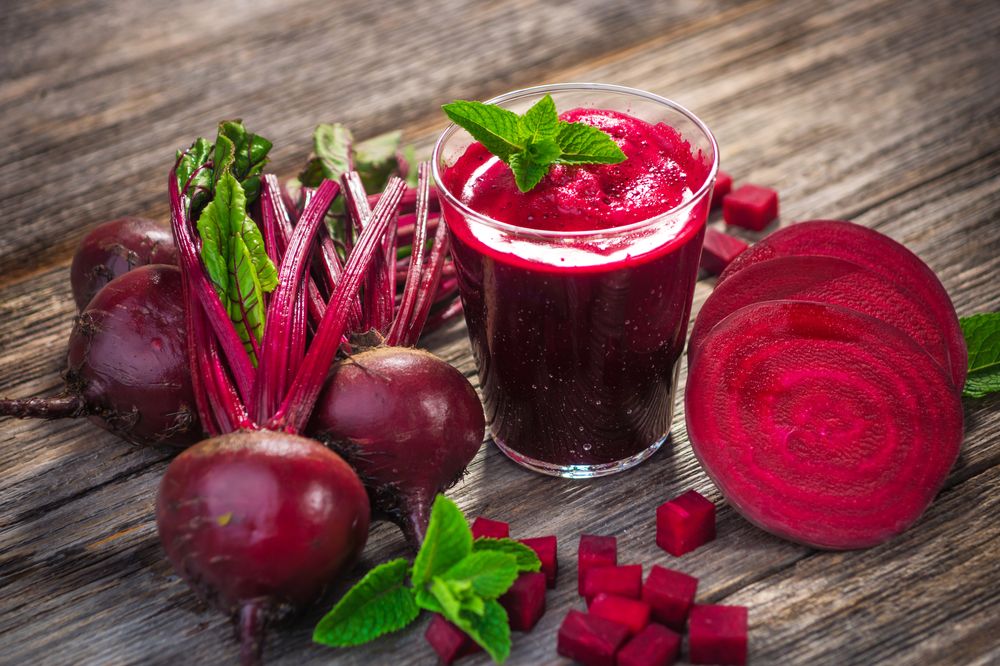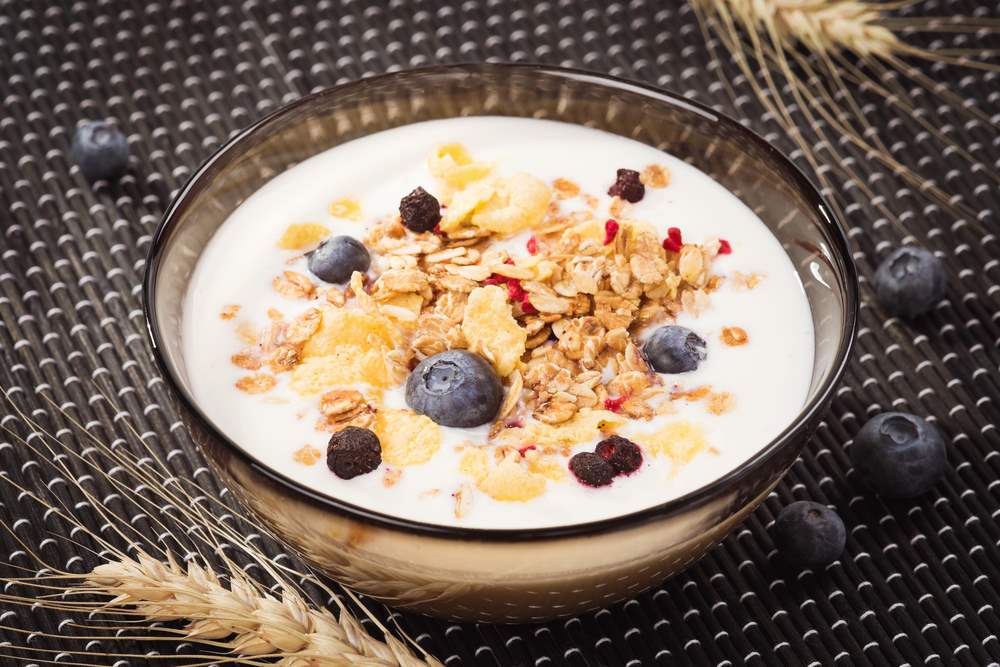Top 5 Foods for High Blood Pressure

Zoomi Singh
December 6, 2022

Zoomi Singh
December 6, 2022
Having blood pressure is the new normal for people nowadays. There is a lot of evidence that a sedentary lifestyle, a fast-moving world, pollution, and stress all have negative effects on man’s health.
Due to the pandemic, most people have a sedentary lifestyle, which is a significant concern and leads to many cardiovascular diseases, not to forget high blood pressure.
Blood runs in your body through veins. The pressure exerted on your vein as blood passes through the vessels is called blood pressure. The normal blood pressure range is 120/80. When the blood pressure exceeds the normal range, it is called high blood pressure.
Following are the key reasons of this rise in blood pressure:
The following symptoms indicate that you may have high blood pressure:

Berries like strawberries and blueberries are loaded with antioxidants and offer several health benefits. One of the health benefits includes reducing hypertension and thus improving cardiovascular health.
Additionally, berries contain anthocyanins, which is a flavonoid. This flavonoid has vasodilatory properties, meaning it helps widen blood vessels and relax smooth muscles. As a result, it helps reduce blood pressure. Several studies prove the vasodilatory properties of berries.
The most significant benefits of berries are:
The best ways to consume berries are:

You can find this fruit in every household. It is pocket friendly, nutritious and is rich in potassium. Salt and water handling by the kidney directly affect BP. At the same time, renal ion channels and transporters maintain electrolyte homeostasis. Potassium is the most abundant intracellular ion and plays a crucial role in regulating BP. It helps improve heart health by reducing blood pressure.
Studies suggest that high dietary potassium may lead to a decrease in BP, particularly in the presence of a high-sodium diet. It is because sodium buildup in the body increases blood pressure. Potassium helps reduce the effect of sodium in your body. Also, it helps flush out sodium from your body through the kidneys, lowering blood pressure.
As per the one banana (126 grams) contain:
The most significant benefits of bananas are:
The healthiest ways to consume bananas are:

While many will be surprised, dark chocolate helps lower high blood pressure. However, the chocolate has to be a minimum of 60–75% dark chocolate. Cocoa in chocolate is a flavonoid that helps prevent high blood pressure.
Research proves that cocoa activates nitric oxide and increases its bioavailability. As a result, it reduces plaque formation in the blood vessels, which widens the vessels and lowers blood pressure.
The ideal amount of dark chocolate to consume is around 10 g/day.However, ensure that the chocolate you eat has a high percentage of cocoa with minimum sugar and fat content.
The nutritional value of 10g of dark chocolate (70%) is:
Minerals
Significant benefits of dark chocolate are:
The best ways to consume dark chocolate are:

In various regions of the globe, beetroot is also referred to as ‘beet’. It is a tuber that is helpful to the heart. That is because beetroots contain nitrate, which gets converted to nitric oxide in your body. Nitric oxide acts as a vasodilator and relaxes the smooth muscles of the heart.
A vasodilator eases the pressure on blood vessels by widening them and hence reduces blood pressure. Beetroot contains nitrates, which are present in both the raw and cooked forms of the vegetable.
Research shows that 500 ml of beetroot juice daily may help lower blood pressure.
The nutritional value of 100 grams of raw beetroot is:
Vitamins
Minerals
The benefits of beetroot are as follows:
The best ways to consume beetroots are:

A common complex carbohydrate, it is a go-to snack for those who desire to reduce weight because of its low calorie content. But, little did you know that oats improve heart health and reduce high blood pressure. Oats contain high amounts of fibre, which aids in early satiety. There is a unique type of fibre in oats called beta-glucan, which is soluble.
Beta-glucan helps reduce cholesterol because it reduces plaque formation in the blood vessels. The reduction in plaque formation makes it easier for blood to pass through the minute blood vessels. As a result, blood pressure stays normal when the blood passes easily through the minute capillaries (tiny blood vessels). This explains why oats are beneficial in lowering blood pressure levels.
The nutritional value of 100 g of oats is:
Minerals
The most significant benefits of oats are:
The best ways to consume oats are:
The dietary approach to stop hypertension, commonly known as the DASH diet. Studies prove its effectiveness against hypertension. DASH promotes the consumption of vegetables and fruits, lean meat and dairy products. It also focuses on the inclusion of micronutrients in your diet. It also advocates the reduction of sodium to about 1500 mg/day. DASH emphasises the consumption of minimally processed and fresh food.
As per studies, the DASH diet is a dietary strategy to lower blood pressure. The diet has been tested in several clinical trials and helps lower cholesterol, saturated fats, and blood pressure. Therefore, it is recommended as the best diet to help people lose weight, maintain a healthy weight and lower blood pressure.
DASH diet has many similarities to some of the other dietary patterns promoted for cardiovascular health. However, the DASH diet is a culmination of the ancient and modern world.
One serving in this diet is 30 grams. Here is the guide to the DASH diet.
Healthy food sources that you can add to this diet are:
Healthy fat sources in this diet include:
Protein sources in this diet include:
Maintaining a healthy diet and leading an active lifestyle may assist to decrease blood pressure. The following are a few lifestyle modifications that may help avoid high blood pressure:
If you are on blood thinners, you should avoid eating certain foods in excess. These foods may result in double action of the medicines and the food, resulting in harmful consequences. Some of the foods to avoid and limit are:
If you are suffering from high blood pressure, you should limit eating vitamin K rich foods. Vitamin K helps in blood clotting. Therefore, it may alleviate blood pressure. Foods rich in vitamin K are:
You should avoid eating table salt in case of high blood pressure. Little salt during cooking is allowed. Salted nuts, biscuits, snacks are strictly not allowed as they have high amounts of salt sprinkled on top. Excess salt leads to high sodium in the body and alleviates blood pressure.
It induces adrenaline secretion in your body. Adrenaline secretion increases blood pressure by reducing the width of blood vessels as it blocks anti-diuretic hormones. Therefore, it reduces the width of blood vessels, leading to high blood pressure.
Alcohol consumption binds calcium to blood vessels. When calcium binds with the blood vessels, blood cannot pass easily through the vessels. Hence, it leads to increased blood pressure.
The average blood pressure values for an adult are 120/80 mmHg. If you have a high BP, you should consult a doctor immediately. Blood pressure cases are rising tremendously day by day in each household. However, an active lifestyle and a healthy diet may help prevent high blood pressure. You know that prevention is better than cure. So lead an active lifestyle, reduce consumption of excess salt, alcohol and caffeine.
A. You can eat several foods to control high blood pressure. However, the primary focus should be eating a balanced diet that comprises all essential nutrients. You should avoid eating excess salt because it adds to the sodium levels in your body. Some foods which help control high blood pressure are berries, beetroot, dark chocolate and oats.
A. As per studies, egg consumption has no significant effects on adults’ systolic and diastolic blood pressure. However, eating eggs in moderation may bring several other health benefits like weight loss.
A. Foods rich in potassium, flavonoids, anthocyanin’s, fibre, nitrates etc., make your blood pressure go down. Cutting down on sodium intake also helps prevent high blood pressure.
A. Foods with high sodium (salt) cause high blood pressure. In addition, you should limit the consumption of foods rich in vitamin K because overconsumption of vitamin K rich foods may lead to blood clotting and alleviate blood pressure. Some foods that cause high blood pressure are cheese, salted nuts, biscuits and foods high in sodium.
A. Bananas contain high amounts of potassium, which reduces the effect of sodium in your body. Sodium is a primary reason for high blood pressure. Therefore, bananas are good for high blood pressure.
A. Yes, it has lycopene and high amounts of potassium. As per studies, lycopene could help significantly reduce blood pressure. However, contradictory studies suggest that canned tomatoes and tomato products contain high sodium and alleviate your blood pressure. Therefore, if you consume tomatoes to lower your blood pressure, ensure you eat fresh tomatoes.
A. If your blood pressure readings are higher than average, you should strictly avoid foods that contain high sodium. For example, you should avoid eating salted nuts and biscuits, coffee, alcohol, salty foods, sodium-rich foods and vegetables.
A. Drinking water can bring you several benefits. First, it helps flush out extra sodium from your body. As a result, it helps lower blood pressure.
A. Yes. Eating ginger may help reduce blood pressure in several ways. That is because ginger acts as a natural calcium channel blocker and natural ACE inhibitor, types of blood pressure medications. It also prevents blood clotting, hence reducing blood pressure.
A. Several studies suggest that an adequate meat intake may contribute to healthier blood pressure and body weight in children and adolescents. Chicken is lean meat, which is acceptable in high blood pressure. However, you should avoid eating grilled and fried chicken and eat it with less or no salt.
A. Eating a diet rich in whole grains like brown rice may help lower blood pressure. It is a complex carbohydrate and may positively affect blood pressure. However, there is not enough study to explain the effect of rice on blood pressure levels. Hence, you should consult your doctor before eating rice in case of high blood pressure.
A. There are many home remedies that you can use to lower blood pressure. These remedies primarily include following an active lifestyle and a healthy diet plan. For example, you should exercise for 150 minutes per week. In addition, you can add beetroot juice, berry smoothie, oats cereal, bananas, etc., to your diet. It will help control high blood pressure.
A. Drinking 1-2 cups of green tea every day does not cause any harm to blood pressure. However, excessive consumption of tea will result in high blood pressure as tea contains caffeine.
A. Although potatoes have a high glycemic load, they also contain antioxidants, vitamins, and minerals. Unfortunately, no scientific evidence proves the relation between potato consumption and its effect on blood pressure and hypertension. However, a study on two groups of the Spanish population says that potato consumption does not increase blood pressure or hypertension.
A. Yes, you can consume it when you have high blood pressure. It helps calm your blood vessels. Honey is rich in antioxidants, which can help reduce blood pressure. In addition, research shows that short-term honey consumption can lower blood pressure in healthy individuals.
A. Lemon water contains several minerals and nutrients which can help reduce blood pressure. For example, lemon water’s potassium and calcium content may effectively reduce blood pressure. In addition, water helps flush out excess sodium from the body. Therefore, it is safe to have lemon water.
A. You can have green tea in moderation. It may help reduce blood pressure. As per research, daily consumption of 5-6 cups of green tea could reduce systolic blood pressure. However, more research is required to confirm its effect on blood pressure.
A. Adapting to healthier lifestyle changes listed above while maintaining low sodium and fat diet is the fastest way to cure blood pressure without medications.
A. No. Caffeine is bad for high blood pressure. It induces adrenaline secretion, which increases blood pressure by reducing the width of blood vessels. Therefore, you should avoid having coffee in case of high blood pressure.

